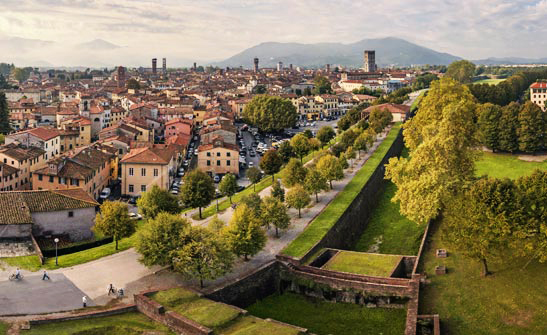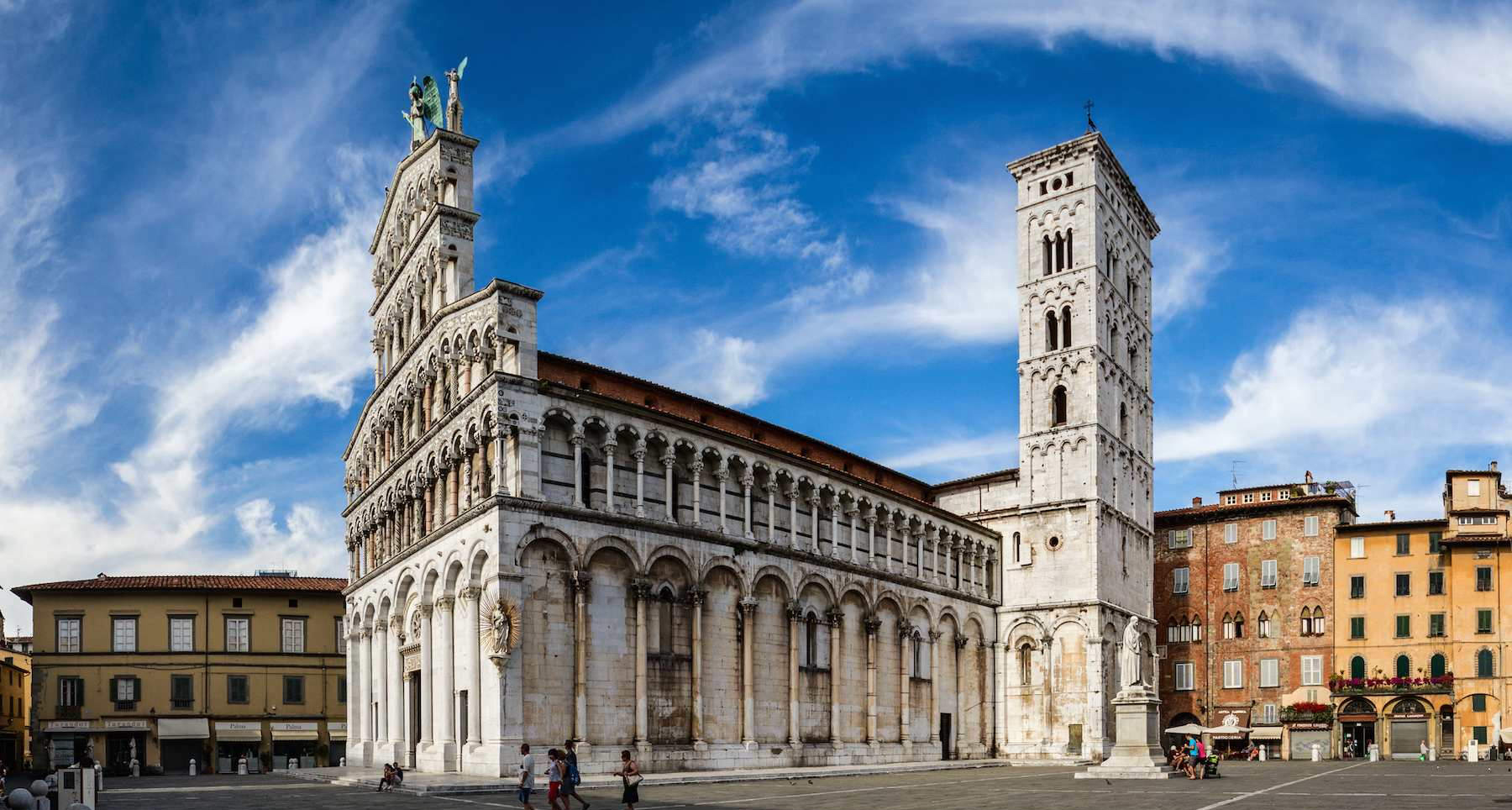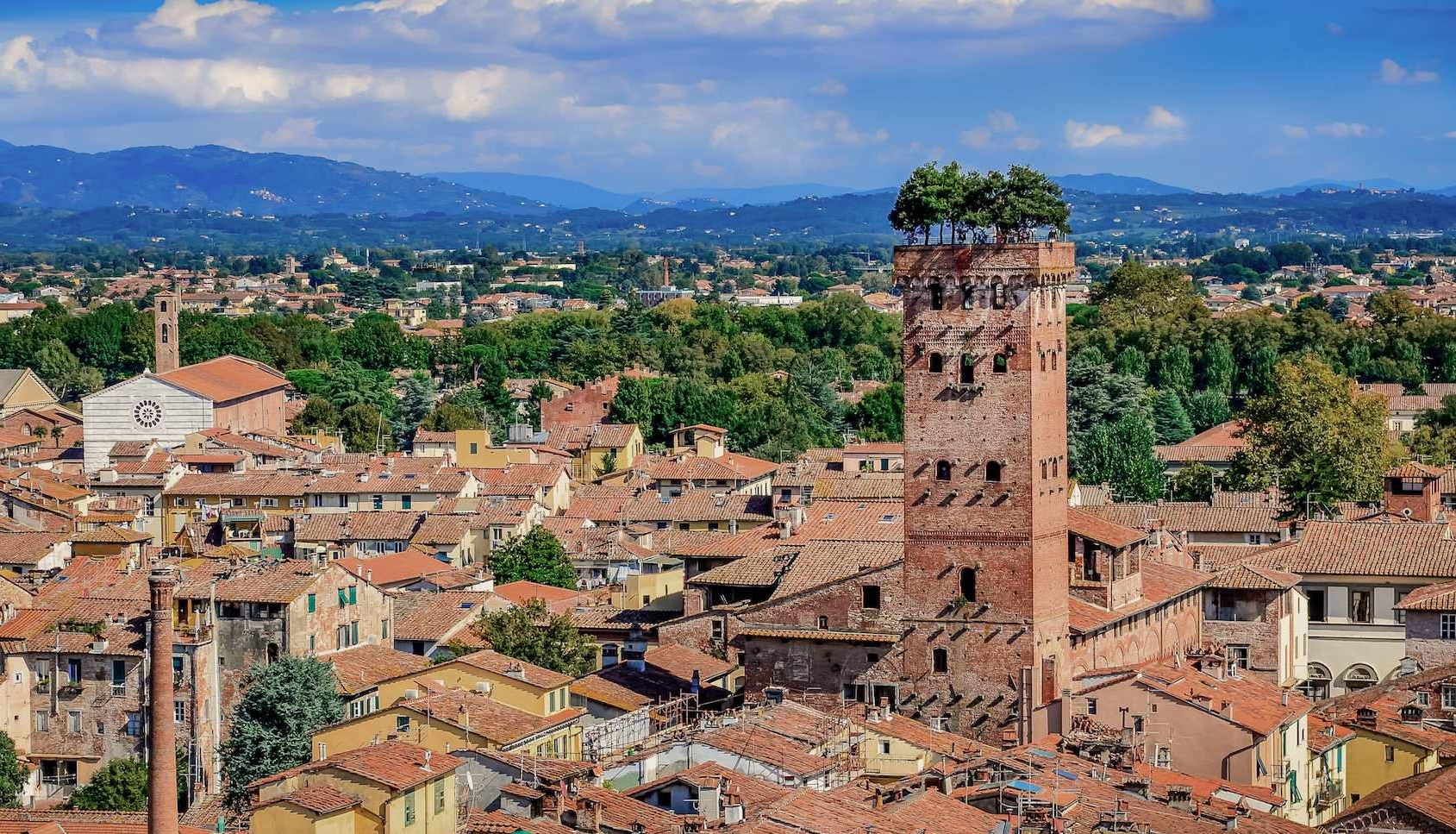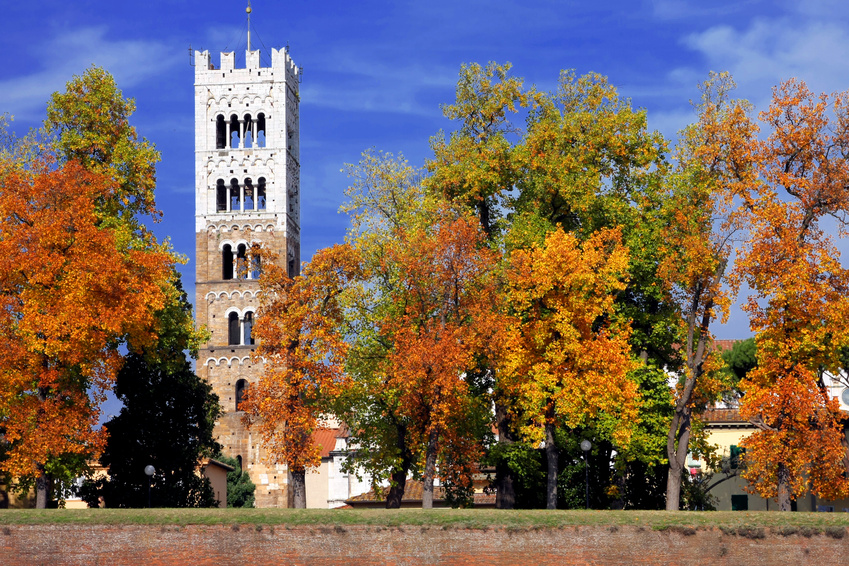The City of Lucca
Lucca is one of the most loved cities of all Tuscany, fully representing the soul of the Region itself. It is located on a plain at the foot of the Apuan Alps and less than half an hour from the coast of Versilia. Lucca is very easy to reach (both by car and train) and by flight, being half an hour far from the International Airport of Pisa and less than an hour from the International Airport of Florence.

The origins of Lucca (at the beginning called Urilia) date back to some exiled Trojans, although there is sufficient evidence of human habitation since the Paleolithic era. Lucca was originally called Luk, from a Celtic-Ligurian root, meaning “marshy place”. The current site was presumably founded by the Etruscans (the “people of the sea”), a civilization of ancient Italy living in Tuscany (and other regions in central Italy) from about 800 BC until they were assimilated into the Roman Republic in the late 4th century. 
The historical centre preserves the Roman street plan made of a rectangular grid, and the Piazza San Michele (one of the main squares) occupied the site of the ancient forum. Lucca became prosperous through the silk trade that began in the eleventh century, and came to rival the silks of Byzantium. During the tenth–eleventh centuries Lucca was the capital of the feudal margraviate of Tuscany, more or less independent but owing nominal allegiance to the Holy Roman Emperor. In 1160 the city began to constitute itself an independent commune. 
For almost 500 years, Lucca remained an independent republic. Lucca had been the second largest Italian city state (after Venice) with a republican constitution ("Comune") to remain independent over the centuries. In 1805, Lucca was conquered by Napoleon, who installed his sister Elisa Bonaparte Baciocchi as "Queen of Etruria".

From 1815 to 1847 it was a Bourbon-Parma duchy. As part of Tuscany, it became part of the Kingdom of Sardinia in 1860 and finally part of the Italian State in 1861.
Most of the attractions are related to its ancient history: traces of the Roman amphitheatre, archeological remains under the 12th century church of Saints Giovanni and Reparata, extremely charming villas and towers dating back to 12-16th century and many more. As the city grew and modernised, the walls that surrounded the old town were maintained (on the contrary, they were lost in all other Tuscan cities, including Florence) and they are nowadays a fascinating pedestrian promenade that can be walked all around the city. Climate is normally very pleasant, particularly during Spring and Summer season.

